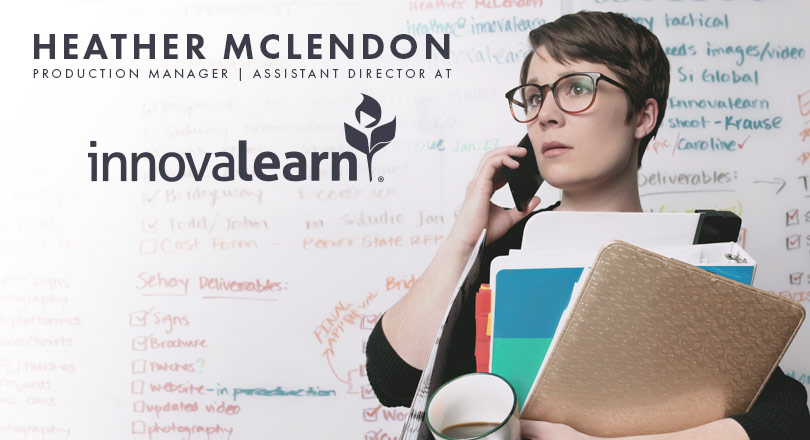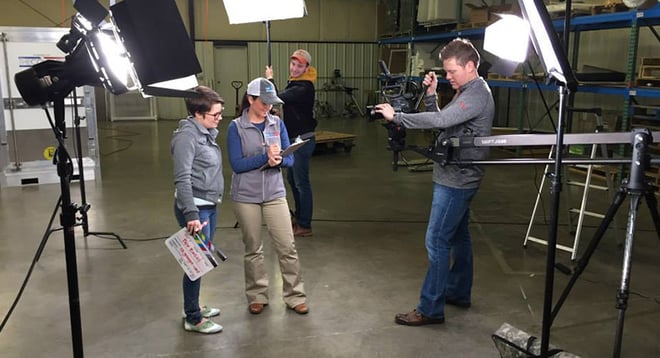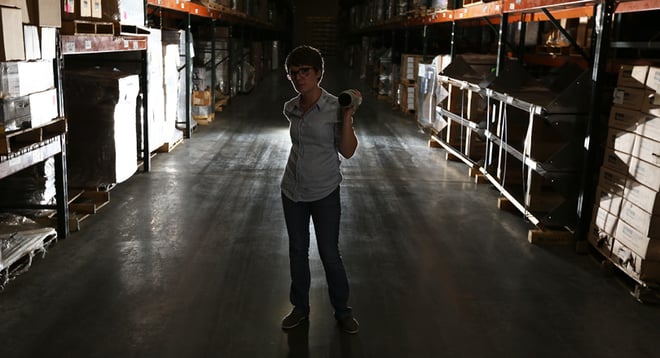What does a typical day look like for you?
It looks like a juggling act! We’re still a very small company so I do a lot of different things and it depends on the day. If we’re in the office I could be communicating with clients or writing scripts. Or I could be out in the field organising everything. But most of the time anything I do involves logistics, details, and coffee.
How does your theater background tie into what you do today?
That’s what brought me to this business really. Theater is my first and greatest love. It helps me with discipline, it helps me communicate with actors, and it keeps me inspired and in love with what we do. After I graduated from college, I went through a lot of the standard cattle-call acting auditions, but I’m very small and I look very young. I had to decide whether to go into children’s theater, but it just wasn’t for me. So I worked for the state theater of Georgia for a while, which was wonderful. I was a stage manager predominantly, which is where I found my organisational flow and figured out how, through planning, I could contribute to the process in a more valuable way. And I don’t find it limiting or removed from the process at all. In stage management you do everything, you make the coffee, but you also call the whole show. There’s no job too small for you. If it’s going to help someone else out, then you do that thing. That’s something I bring to my current job every day.




